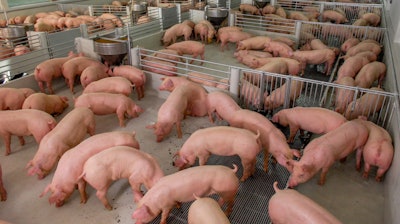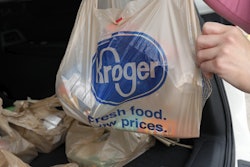
If you are in the business of buying or selling pork-based products, then you have probably heard of California’s Proposition 12. As it pertains to pork, the law requires that pig confinement systems are large enough to allow the animals to fully lie down, stand up, extend their limbs, and turn around freely. Starting January 1, 2022, it will be illegal to sell pork products in California that have been sourced from animals who were confined without this freedom of movement. This is the case even if the pigs were born, raised, and slaughtered outside the state of California, and therefore the law is expected to widely transform the pork industry. As your business looks ahead to the new year, here are some of the key aspects of the law that should be considered:
Who Does The Law Apply To?
The law applies to all farm owners and operators located within the state of California. Cal. Health & Safety Code section 25990(a). The law also applies to all business owners or operators who are selling pork products within the state of California. Cal. Health & Safety Code section 25990(b).
The law applies to any “breeding pig,” defined to mean “any female pig of the porcine species kept for the purpose of commercial breeding who is six months or older or pregnant.” Cal. Health & Safety Code section 25991(a).
Are There Any Exceptions?
“Exception” might be a strong word, but there are some qualifications that can help farm and business operators comply with the law:
For Business Operators: Whole Pork Meat. The law provides that business owners cannot knowingly sell “whole pork meat” from an animal who was cruelly confined, or meat of the immediate offspring of a breeding pig. “Whole Pork Meat” is defined to mean “uncooked cut of pork,” including bacon, ham, chop, ribs, riblet, loin, shank, leg, roast, brisket, steak, sirloin, or cutlet, that is comprised entirely of pork meat, except for seasoning, curing agents, coloring, flavoring, preservatives, and similar meat additives. Whole pork meat does not include combination food products that are comprised of more than pork meat, seasoning, curing agents, coloring, flavoring, preservatives, and similar meat additives. Cal. Health & Safety Code section 25991(u).
In other words, once pork is combined, cooked, or ground, Prop 12 no longer applies to the pork product. A business who cooks its bacon bits, wraps its bacon-wrapped scallops, stuffs its hotdogs, or puts pepperonis on its pizzas outside the state of California can do so without using Prop 12 compliant pork products, and ship those into the state for sale.
For Farmers: FSIS Inspected Facility. The law excludes from its definition of “farm” all “establishments at which mandatory inspection is provided under the Federal Meat Inspection Act.” Cal. Health & Safety Code section 25991(i). In other words, all farms in the state of California who meet this exclusion will not have to provide the extra space to its breeding pigs.
Further, California-based farmers can purchase non-Prop 12 compliant pigs from outside of California, and bring them into California, or sell their own non-Prop 12 compliant pigs outside the state of California, so long as the farmers are purchasing and selling the pigs from FSIS inspected plants. The California Department of Food and Agriculture’s (CDFA) guidance on this point is clear that the law “excludes transactions where physical possession of pork meat is taken at an establishment inspected under the Federal Meat Inspection Act (FSIS inspected plant).”
Despite this language in the law, the FSIS inspected facility “exception” has real limits. Once the breeding pig or whole pork meat leaves the FSIS inspected facility, the exception ends. If the farmer wants to sell its whole pork meat to a business operator or owner in California, that transaction cannot occur unless the pork products are Prop 12 compliant. As CDFA explains, “the exemption attaches to the FSIS inspected plant, but does not attach to the pork meat.”
For Business Operators: Good Faith Certification. The law specifically provides that a business owner or operator may defend an enforcement action by showing it relied “in good faith upon a written certification by the supplier that the … whole pork meat … was not derived from a covered animal who was confined in a cruel manner, or from the immediate offspring of a breeding pig who was confined in a cruel manner.” Cal. Health & Safety Code section 25993.1. Business owners and operators should consider seeking such a certification from their pork suppliers.
When Does The Law Take Effect?
As noted above, the law takes effect on January 1, 2022. That does not mean that non-compliant pork on shelves has to be pulled off on January 1, however. The CDFA is allowing all pork in inventory or commerce to be sold through to consumers.
There have been several lawsuits filed challenging the law and seeking to halt it from going into effect; however, as of the date of this publication, none of the lawsuits have succeeded in preventing (staying) the law from going into effect. A challenge brought by the National Pork Producers Council is presently pending before the United States Supreme Court. (National Pork Producers Council v. Ross, U.S. Supreme Court Case No. 20-55631.) The United States Supreme Court and the Federal Ninth Circuit rejected an earlier case brought by the North American Meat Institute. (North American Meat Institute v. Bonta, U.S. Supreme Court Case No. 20-1215 (denying cert petition); North American Meat Institute v. Becerra, Ninth Cir. Ct. App. Case No. 19-56408 (affirming denial of preliminary injunction).)
At this point, businesses should expect that the law will take effect on January 1 of this upcoming year.
This article does not cover all aspects of the law. The law is codified at California Health and Safety Code sections 25990 to 25994 and can be viewed in full here. Guidance from CDFA is available here.
 From Left: Khirin Bunker, Abby Meyer and Scott Miller.
From Left: Khirin Bunker, Abby Meyer and Scott Miller.
Khirin Bunker is an associate in Sheppard Mullin’s Business Trial Practice Group and is a member of the Food and Beverage Industry Team. Abby Meyer is an associate in Sheppard Mullin’s Business Trial Practice Group and is the lead associate for the firm’s Food and Beverage Industry Team. Scott Miller is a partner in Sheppard Mullin’s Intellectual Property Practice Group.























